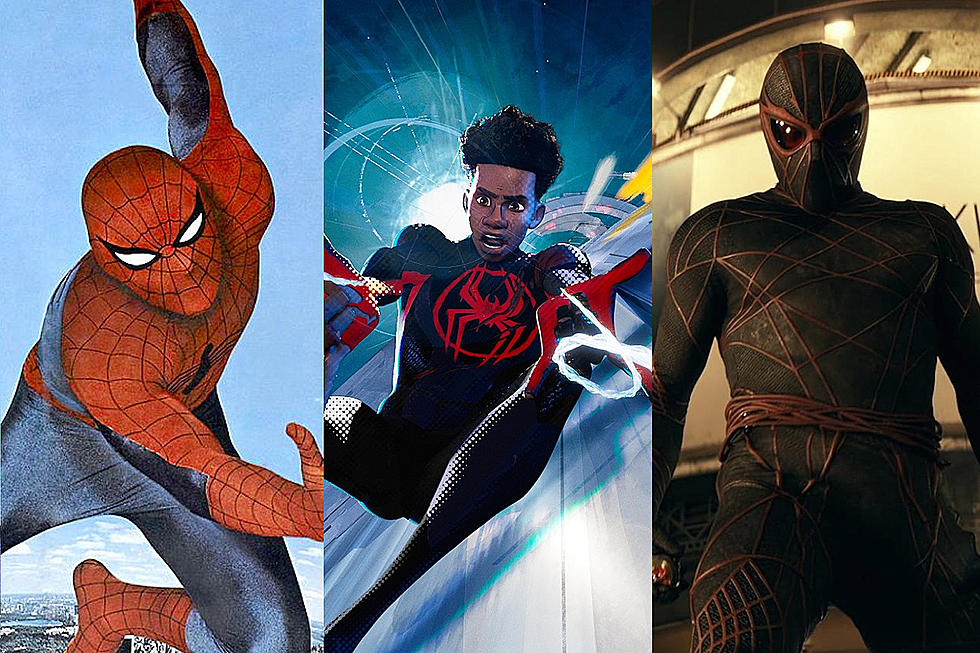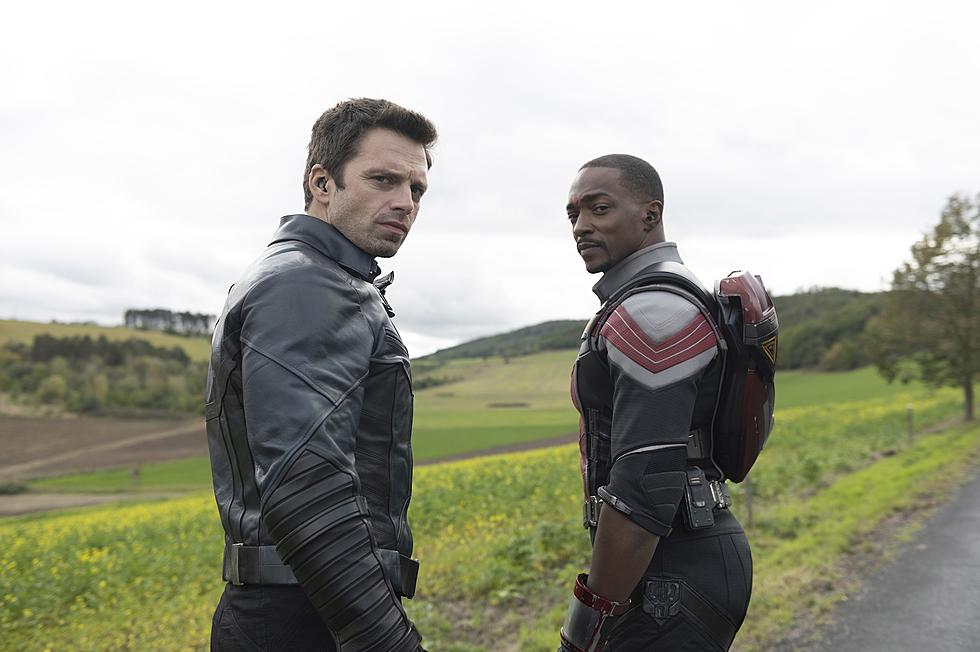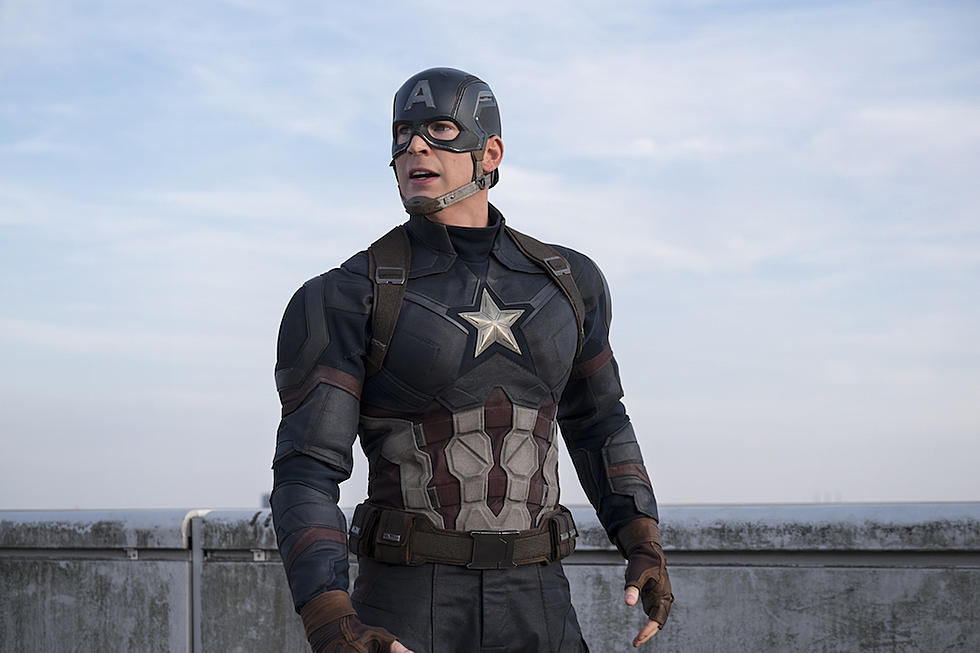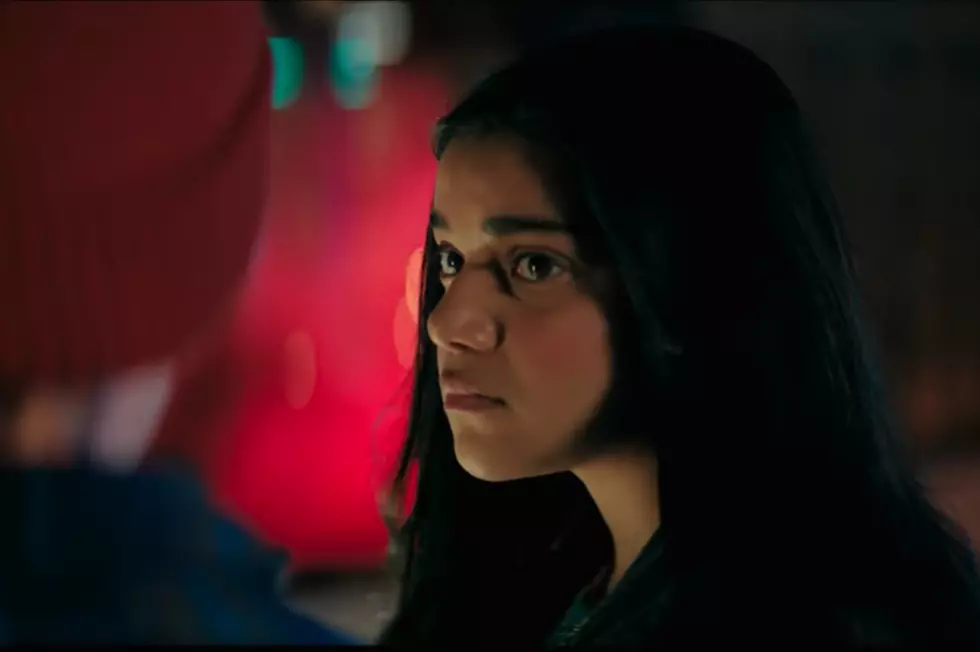
Putting The Sidekick In The Suit: Black Captain America, Female Thor, And The Illusion Of Progress
I'm not excited for Sam Wilson as Captain America, and I'm not excited for a female Thor.
Now, I don't think these are totally wrongheaded things to do. I admire the impulse behind these changes, and I believe they come from a good place. In the abstract sense, I love the idea of Marvel featuring, in big, bold style, the adventures of a black man and a woman against the hordes of iniquity. I believe at least part of the motivation behind these changes is genuine in its altruism, and that it is not entirely invalidated by profit-seeking impulses. I want to believe in this initiative. I want to be excited. I do not want to be the curmudgeon in the corner, needlessly nitpicking everyone else's good time to pieces.
But it feels like a gimmick, and functions like a gimmick, and that’s because it is a gimmick. I give it perhaps two years — two years that only the most hard-core aficionados will end up able to recall, alongside their recollections of the foil covers era and that one time Doc Ock was Spider-Man.
No one has put it better than Christopher Priest, celebrated former Marvel editor, and writer of some of the best damn Marvel comics ever put to page: “Putting the black sidekick in the suit, when everyone knows sooner or later you’re going to switch things back to normal, comes off as patently offensive.”
This was not built to last, and as such, these are not changes that disrupt business as usual. The most bigoted fan can go about their Cap- and Thor-loving life largely untroubled by these events, save for a little message board mayhem, and thus these are not changes I care about. Because that's a large part of the point of writing characters who aren't straight white dudes: disruption. Making change that cannot be ignored by those who wish they could.
The other part, to me, is the empowerment of people who are not straight white dudes, and I believe many race and genderbent characters fail on this count as well.
I often exhort those intimidated by the prospect of writing anything but straight white dudes to take a character they love and imagine them with one pertinent aspect changed. They envision a female Sherlock Holmes, a Latina Elle Woods, a gay Booker DeWitt. This thought exercise helps creators humanize lives that feel alien to them, and avoid tiresome clichés -- but it is not, on its own, the answer to a suffocating traditional industry. Because really? Anyone who is not a straight white dude leads a life that is affected by not being a straight white dude.
If pressed, I would argue that it is better to make race- or gender-blind tweaks to a character than to fall back into comfortable stereotypes — but I believe that most comic writers ought to be capable of delivering both visible diversity and more profound representations of identity, and that they should be actively encouraged to do so.
I want characters of color, female characters, and LGBTQ characters to be unbound by stereotypes, to be heroic and villainous and interesting in all the ways typically denied them. I don't want everything about them to boil down to their gender, their race, their sexuality, or any other aspect that colors them as “other.”
I'm not looking for every book that features a black character to be Truth: Red, White and Black, every book about a lesbian to be Fun Home, nor for every superheroine to start throwing down Simone de Beauvoir quotes. But creating characters so disconnected from what makes them “other” is not the solution. I can like these characters, even love them, but they should not be employed as the standard for diversifying a universe.
As a child, I sought out characters who shared my gender and ethnicity and thrilled to everything from descriptions of first periods to picadillo. These sorts of details matter -- to those who recognize them in their own lives most of all. I don't need the character's othered identity to take center stage at all times -- I believe there is room for work that engages with these issues very lightly, or not at all. But “not at all” should never be looked to as the ideal.
Moreover, initiatives like a female Thor and Sam Wilson as Cap are compromised by their very origins as “bent” characters. They make the news because they occupy, however briefly, roles made famous by straight white dudes. Implicitly, the highest thing they can aspire to be… is a straight white dude.
You know what would have excited me so much more than a female Thor, or Sam Wilson as Cap? The announcement of a Dazzler solo series, or a Falcon solo series, or an America Chavez solo series. Something that would portray these characters on their own terms, with real company backing and a fantastic creative team. Something that could give these characters transcendent adventures, create classic arcs, and rocket them from obscurity to high-profile success. Something that had a chance of really lasting. I want the unqualified adventures of a woman as a woman, and a black man as a black man. I want their legacy to be their own. I don’t want dithering over, “Which Thor do you mean?” or, “What era of Cap?” I want the comics industry to truly, fully commit to promoting these identities -- and I believe they are capable of it.
I don't need Marvel to entirely abandon the practice of furthering legacy names the way they’ve done with, say, Kamala Khan as the new Ms. Marvel. With a proper level of commitment, that can lead to some damn good comics. And I recognize the value of taking icons like Captain America, established as a figurehead of goodness and justice, and making him black (or trans, or female, or what have you). I think that can be a brave and interesting act. But I need this to not be the go-to strategy for diversification. It is, essentially, half-assing it — and I believe that this industry and this community are beyond that.
To really nail these portrayals of difference, comics need a more diverse pool of creators to draw from. And this is where initiatives like female Thor and Sam-as-Cap truly fail.
Again, Christopher Priest put it best: “Hire some actual black people.”
It's not that I think straight white dudes can never convincingly portray experiences that they do not personally share. Renee Montoya, a Dominican-American lesbian, was depicted with honor and compassion by Greg Rucka, Ed Brubaker and Michael Lark in Gotham Central. Terry Moore has made a career of illuminating the complicated interior lives of women, often in love with other women. Michael Dante DiMartino and Bryan Konietzko have, in Avatar: The Last Airbender, created a massive fictional universe without a single white person in it. But this sort of work is not the norm. Straight white dudes' attempts to portray othered experiences are by no means uniformly terrible, but they're rarely great, and even more rarely do they feel true.
I find that truth in Jillian and Mariko Tamaki’s portrayals of female adolescence, and the ways Los Bros Hernandez capture Spanglish. It's in the stories that creators from othered backgrounds think to tell at all, the nuance they capture, the risks they take that others wouldn't. We need to care about real people, dealing with real experiences of difference, gaining a voice in this industry. It isn't just hypocritical to pat yourself on the back for throwing a black guy and a woman onto a few covers as you keep them out of your offices — it's an outrage. That is the first thing that should change.
Creating an industry and a community that is open to, interested in, and actively seeks out a diversity of experiences and lives should be the first priority. It should be the ideal everyone is striving towards, and it should never be a topic that anyone feels comfortable setting aside, putting off, or otherwise dismissing. This will help the industry tell better stories — but it is also, simply, the right thing to do. And doing the right thing should be present in the minds of everyone who works in such an idealistic genre.
So here’s my plan. The comic industry needs gatekeepers who will actively seek out creators who are not straight white dudes. Given how porous the line between fan and professional is, and the absolute explosion of talent happening online, this shouldn't be a problem.
Second, these gatekeepers must encourage the creation of a diversity of new characters and/or the spotlighting of existing minor characters. Give me a Jubilee solo series! A Rocket series! An Armor series! And then promote the hell out of them. Follow whoever’s idea Unbeatable Squirrel Girl and the hiring of Babs Tarr was at Marvel and DC respectively, and take it even further. Take risks with the storytelling. Lavish your best creative talent on it. Respect the work and treat it with confidence, as you would a book about a straight white dude. Don't be afraid to tell a different kind of story either. Conventional superhero tropes are often rooted in straight, white and male experiences, so feel free to shatter them. And above all, give a damn.
I believe comics can, and will get better. I believe the industry has made tremendous strides in the last few years, and I believe many in the industry care about telling better stories about all kinds of people. Really, othered experiences are already a part of the stories these comics tell — this genre is, after all, rooted in the experiences of the poor, first generation Jews who largely created it. The superhero comic industry has been making comics about societal discontent, disenfranchisement and hidden greatness for decades. All it needs to do now is live up to its own legacy.
More From ComicsAlliance









